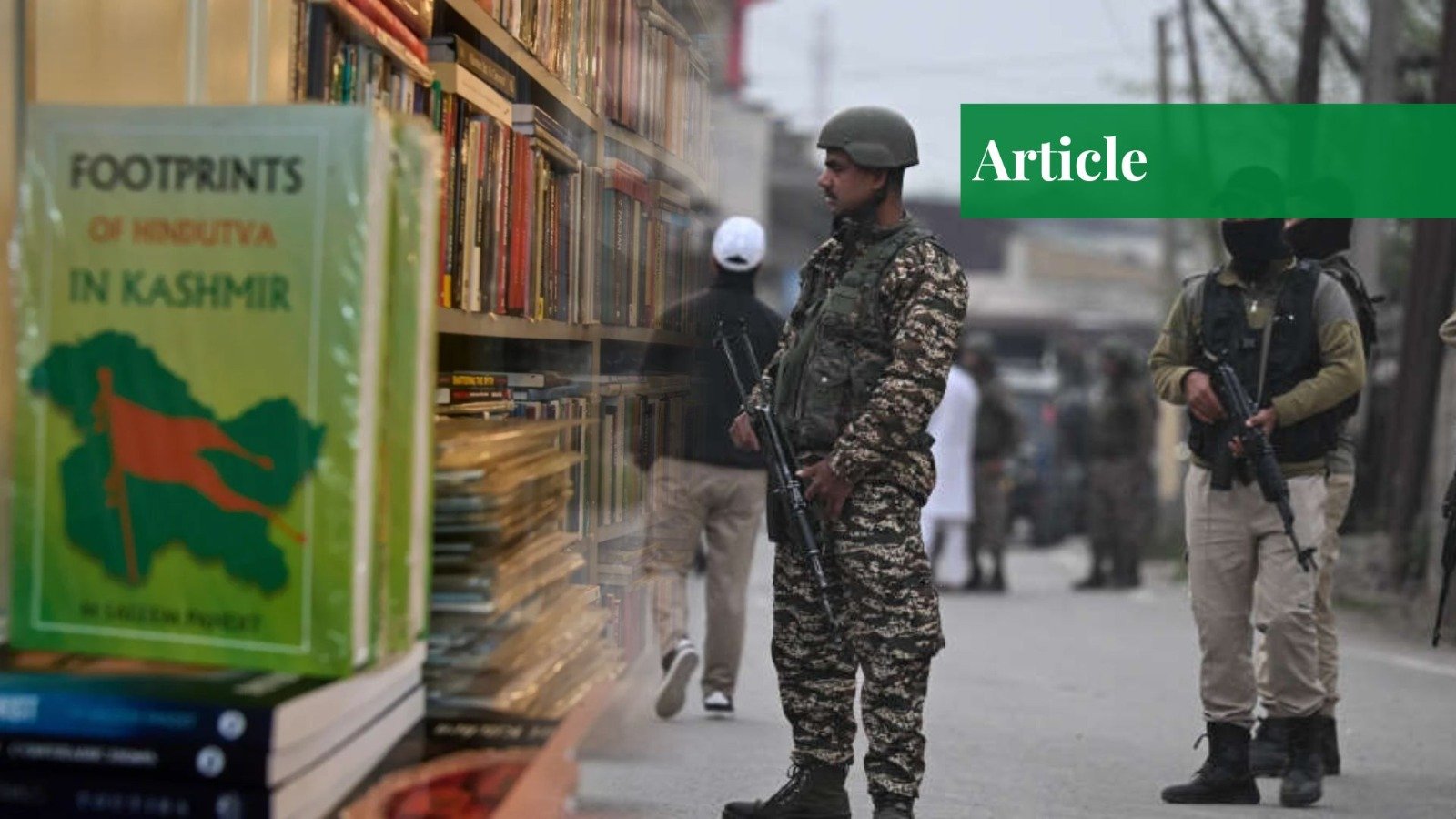Introduction
The surveillance and control by the Indian police in Jammu and Kashmir reached a new high last month. It was an unusual event; uniformed officers were reported to have been raiding bookstores across the disputed region, demanding that shop owners hand over certain books that the Indian government had recently banned. Since the Indian government decided to revoke Jammu and Kashmir’s semi-autonomous status back in 2019, there has been a stark increase in the control of the Indian central government in the region. Many people analyzing the situation believe that this has not been Delhi’s first attempt at censorship, but this recent ban on Kashmiri literature has been seen as the final blow to a people fighting for their right to self-determination.
The Impact of Recent Book Bans on Kashmiri Literature and Identity
All 25 books recently banned by the government of Jammu and Kashmir are essential literature for the indigenous Kashmiris. These books, now considered forfeited documents, provide a detailed overview of the events that led to the disputed status of this land, hence why the ban is detrimental to Kashmiri literature. The banned books include Booker Prize-winning writer Arundhati Roy’s Azadi, The Kashmir Dispute 1947-2012 by constitutional expert AG Noorani, and other pieces highlighting events starting from the time of partition, which led to the state Kashmir is in today.
In addition, the blacklisted books also include those discussing the consequences of the revocation of the semi-autonomous status of Kashmir after Article 370, passed in 2019. Anuradha Bhasin, a senior journalist, wrote Dismantled State: The Untold Story of Kashmir. After Article 370, discussing the increase and severity of Delhi’s control over Jammu and Kashmir. Another important book that has been recently banned by the Home Department is Do You Remember Kunun Poshpora, a book documenting testimonies of survivors of mass rape and torture by the Indian forces in Kupwara, the northern district of Kashmir, in 1991.
A 50-year-old work by Kashmiri freedom fighter and judge Yousaf Saraf and the Kashmiri-American author Hafsa Kanjwal’s book, Colonizing Kashmir, have also been banned. In addition to political writings, religious books by eminent religious scholars, Syed Abul A’la Maududi’s book Al Jihad Fil Islam and Mujahid Ki Azan by Hassan Al Banna, have also been blacklisted by this new order by the government.
Government’s Sweeping Ban on 25 Books in Jammu and Kashmir
The sweeping ban of 25 books was announced on 5th August, the 6th anniversary of the events of 2019. The order was signed by the Principal Secretary, Home Department, J&K, Chandraker Bhart. According to the order by the government, the banned books spread false narratives that are capable of igniting a sense of secessionism among the youth, which can eventually lead them to violence and terrorism. The government claims that the forfeited documents have been found to showcase and promote a culture of grievance and victimhood, aiming to radicalize the Kashmiri youth.
According to the Home Department, glorification of terrorism and promotion of violence are fair grounds for the government to act under section 98 of the Bharatiya Nagarik Surakshan Sanhita 2023, which grants state governments the power to declare publications like newspapers, books, or documents as forfeited to the government if they are found to fulfill the specific criteria given in this section. The local police in Jammu and Kashmir, directed by the government, immediately started the execution of this order by conducting searches and seizures of bookstores across the disputed territory, demanding shopkeepers hand over all copies of the forfeited documents that they may have at their stores, and warning against future stocking or selling of the blacklisted books.
Criticism Against Government’s Book Ban: Calls for Transparency and Intellectual Freedom
The government’s action has seen heavy criticism. The renowned authors whose books have been forfeited have raised their voices against this ban. Senior journalist Anuradha Bhasin, author of one of the blacklisted books, in a recent interview, questioned the criteria of the government on which they have banned the book. The author, calling it a blow to intellectual freedom, demands that the authorities disclose exactly which paragraph or page of each book fulfills the criteria necessary under section 98 of the Bharatiya Nagarik Surakshan Sanhita for it to be forfeited.
The ban on Kashmiri literature has also been heavily criticized by the current chief minister of Jammu and Kashmir, Umer Abdullah, and other indigenous political leaders of the region. Most criticism, however, came from the people of Kashmir. Locals called the government’s action an attack on the people’s memories, asking whether the government believes banning books can erase the unfortunate events of the past from the memories of the people who have lived through those atrocities.
Conclusion
The recent book ban in Jammu and Kashmir serves as a reminder of the control and interference of New Delhi in the disputed land. Since the events of 2019, there have been multiple attempts by the government to tighten the already policed region. What started with an attempt to silence and control narratives through media has now made the authorities bold enough to take sweeping action, banning some of the most precious pieces of Kashmir’s literature in the past 100 years while simultaneously promoting literature and book reading through a state-sponsored book festival.
India, a democratic state, has aimed at the very memory of the Kashmiri people by banning literature, violating the basic right of its citizens to information and the freedom of speech. The authorities and their justifications for the actions make one question whether criticizing the government will now be equivalent to glorifying terrorism and promoting separatism. This has not been the first attempt by the authorities to silence civil society, media, and politics, and it surely will not be the last. But the important question is, will the government be able to control the narratives of its populace by force?
If you want to submit your articles and/or research papers, please visit the Submissions page.
To stay updated with the latest jobs, CSS news, internships, scholarships, and current affairs articles, join our Community Forum!
The views and opinions expressed in this article/paper are the author’s own and do not necessarily reflect the editorial position of Paradigm Shift.
Fatima Mazhar is a 9th-semester law student at the International Islamic University, Islamabad. She is currently serving as the chairperson of the Law Students Council, Pakistan.



